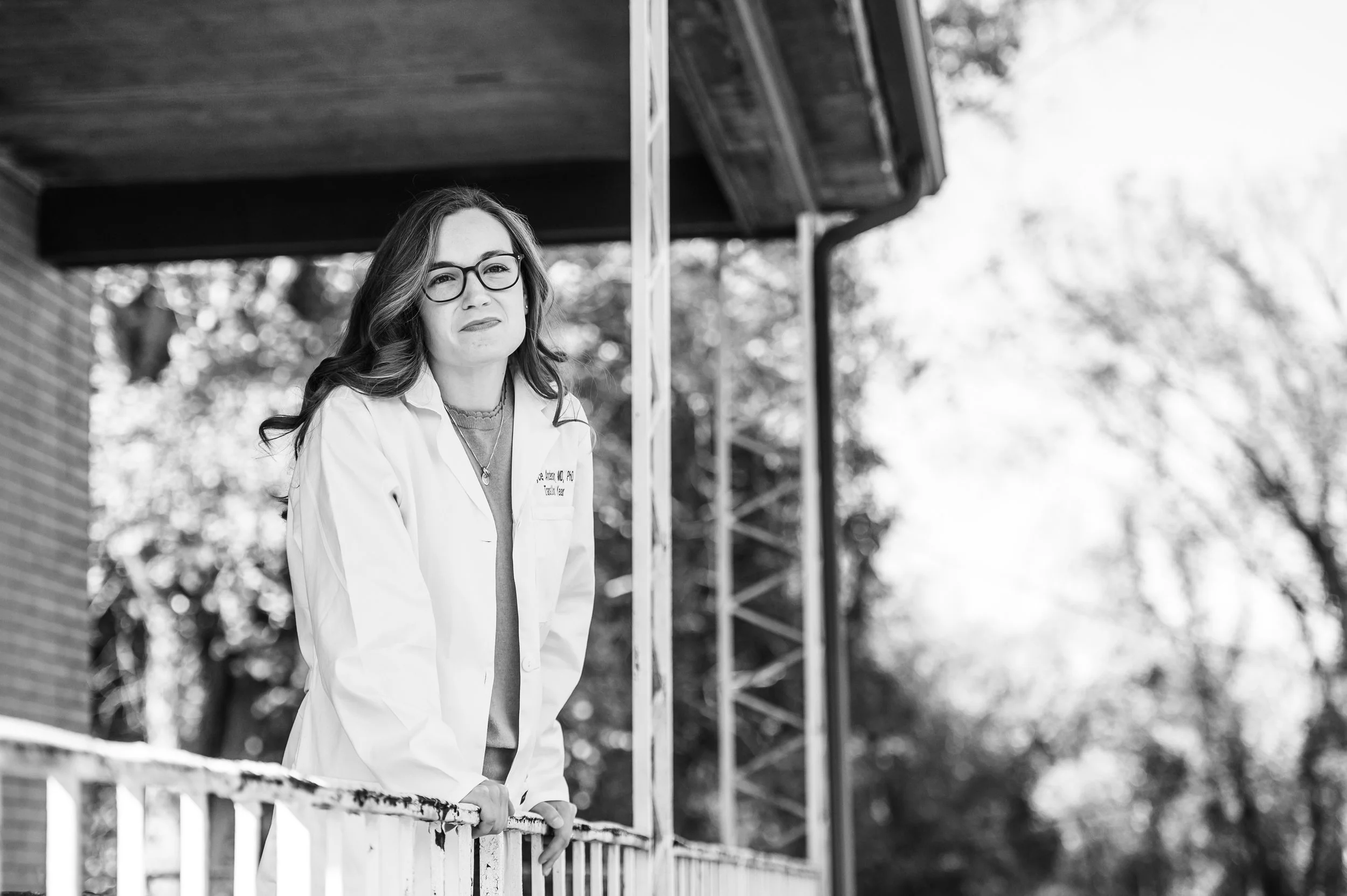Intern Year Rotations
My schedule for intern year:
Medicine Night Float
Derm Path
Medical ICU
Medicine Floors
Emergency Room
GI Consults
VA Medicine Floors
VA Medicine Floors
Research Month
Outpatient Urgent Care Clinic at the VA
Medicine Floors
Inpatient Heart Failure Floors
Dermatology
My schedule was a wee bit front loaded, but I asked for it to be that way. We were hoping for a rainbow baby to bless us during intern year. We have always wanted a big family, so, despite no luck of growing our family in the fourth year of medical school, I was hoping I could squeak out a maternity leave during intern year. I mentioned this briefly in our original schedule requests, and my PD was super supportive. Therefore, I received an amazing schedule that could work if God blessed us with a growing family. Hands together for women supporting women and changing the culture, am I right?! Whooot!
I knew that I just had to make it through those first six months - and we did! Here’s a recap of some highlights of intern year:
Night float:
Survival. Learning how to enter orders, admit a patient, triage stability. Learning sick vs. not sick, vs. really deep sleeper. I was SO thankful for my crew of senior residents who brought me up to speed. Oh did I forget to say how wild it was trying to arrange childcare when my husband also works 24 hour calls?! I don’t know how we did it, but we made it through night float as a two physician family thanks to our childcare st
Derm Path:
Mind blown. Trying to figure out how I’m going to learn anything about Derm Path while learning all of Derm at the same time. Also had weekends off and binged on self development reading! If you find yourself with some time to read as an intern with your new paycheck, I highly recommend The White Coat Investor. It’s an easy read and great place to start figuring out how to handle your new and novel income!
Medical ICU:
DAMN. This place is wild. Crazy medicine, super sick patients, brilliant attendings, doctors and fellows. I was feeling major imposter syndrome, like I would hope all new interns in the ICU would, hah! But, despite the hard work and long hours, arriving for early mornings meant beautiful sunrises from the top of our hospital.
I really enjoyed this intense month taking care of my patients, and their families. I cared for patients who recovered and ultimately transferred out of the ICU. I cared for some patients who ultimately passed away. I saw tragedy. I coomforted families. It was an amazing experience that I’ll never be able to replicate and I’m truly grateful for.
The medicine and physiology was tough. Many interns, residents and fellows reference the ICU Book for guidance and evidence. It’s a small, comprehensive book that’s easy to read and digest. I highly recommend.
Medicine Floors:
After being in the ICU, the Medicine floors felt like home. It was a good month. Great crew and leadership. I mastered the progress note and the discharge summary. I was getting the feel of inpatient medicine, taking care of complex patients and wrapping up my “to-do list” on time. I absolutely relied on Pocket Medicine for for my daily work up of new patients. This book is essential to fourth year medical students and new interns to serve as a quick reference.
Emergency Room:
I am so grateful for Emergency Department physicians and ER doctors. This place is wild. You just never know who or what is walking through that door. It could be a splinter, a head bleed, eye problems (so many eye problems), opioid seeking patient vs. frequent flier, or tuberculosis. It’s absurd and the grace by which ED physicians care for their complex patients is impressive. Honestly, I was uncomfortable with the breadth of presentations and acuity. I am so glad that other professionals thrive in that environment. There were good days. My favorite memory was sewing a laceration while my college-aged patient pumped up the new Post Malone record. We also took a vacation to Canada with our au pair. Nothing like a vacation week to make the month go even faster!
GI Consults:
You know how much I love the filthy intestines. I had originally intended on becoming a gastroenterologist. Almost all of my research was on the immune pathways or the clinical care of patients with inflammatory bowel disease. I still love gastroenterology and feel a burst of energy when talking about IBD. However, I didn’t become a gastroenterologist because there are many other digestive organs that I am not as fond of, including the liver and pancreas. Haha, you know the saying… do NOT mess with the pancreas. My time on GI consults was a lot of fun. We were assigned new consults each day and had time to worth them up and dive deep into their history. They had complicated histories, and we were pushed beyond the first 5-10 evidence based steps of treatment. These patients had problems that required experience beyond the textbooks, and I was grateful to spend time learning from excellent fellows and attending physicians on the GI service.
VA Medicine Floors:
I was lucky enough to spend a few back to back months of inpatient medicine taking care of wonderful people and heros. There is something so special about veterans. Many are from smaller towns outside of Pittsburgh, and I loved connecting with them and hearing some of their stories. My teams were fantastic and sharing the month with excellent co-interns and residents makes ALL the difference. I had some sick patients, that’s for sure. I remember discussing tough diagnoses with patients and also the next steps of home hospice or hospital based comfort care. There were family dynamics that tested my patience and I continued to remind myself that people do the best they can with what they have.
Each day I tried to work on efficiency and planning. I tried my best to get back to my family at a decent time each evening. I also had my first, and last, 28 hour call. It was through these months on inpatient service I felt that I was becoming a physician. You learn so much on general medicine floors by taking care of your patients as well as interacting with your consultants. Although the hours, days, and weeks were tough - I miss my time there. The VA hospital is a special place - perhaps not the most efficient or modern, but the people and culture at the VA makes spending time there even more special. Long live the “VA-Spa”.
Research Month:
As an MD/PhD student, I was craving some autonomy and ability to ask questions. Only PhD nerds crave the ability to jump into a huge excel file and grind through the data. I was able to connect with my mentors from medical school including experts in Dermatology and Gastroenterology to tackle some projects that had to be pushed to the side while I jumped in feet first to clinical life.
Outpatient Urgent Care at the VA Hospital:
Urgent care is an art. You can be taking out sutures, seeing patients after their prolonged hospitalizations, evaluating sinusitis, providing reassurance, or managing low back pain. I was naive to the musculoskeletal exam, and grateful for the opportunity to precept my patients. By this time in the year I felt comfortable prescribing the most potent intravenous antibiotics, but I lost my edge on basic outpatient medicine. I had to refresh on the algorithm for basic outpatient antibiotics and NSAIDs for joint pain. Towards the end of this rotation traffic slowed and we were urging patients to say home to decrease healthcare exposure in the setting of the pandemic.
Inpatient Cardiac Unit:
This rotation was unfortunately modified due to the Coronavirus pandemic. It would have been a fascinating rotation working alongside excellent cardiologists, cardiology fellows, and heart failure specialists. As a trainee, you have the chance to see insane cardiac physiology (something my cardiac anesthesia husband gets all excited about). I was looking forward to the opportunity, but also had the realization that I wouldn’t have the opportunity to manage heart failure beyond intern year as I was transitioning to my Dermatology residency. I was able to replace this rotation with dedicated academic time in Dermatology and research as an alternative!
Dermatology and Dermatopathology:
I was able to design a curriculum and take part in the didactics at my home institution. Typically Dermatology as a Medicine intern includes working closely with dermatology residents and assisting them in anyway possible. Occasionally, medical students and interns see their own patients in conjunction with the attending. With the pandemic, many practices halted outpatient patient care until we had a better understanding of the virus, transmission, and risk to patients and physicians. The decline of in-person visits meant a parallel increase in tele-dermatology at the University of Pittsburgh - and they have a robust tele-dermatology practice. Unfortunately, residents were already participating in three way evaluations and as a rotating student I wasn’t able to barge in and take away these important learning opportunities from the residents.
Much of my final rotations were independent study. This was common across all specialties during the initial months of the pandemic. The hospitals and clinics shut down all nonessential care. It was an exciting and nerve racking time. i was also closely involved with the Department of Medicine, attending all of the morning and noon conferences. I used this time to get in involved in many dermatology societies. Honestly, I loved this opportunity to work from home and be near my kids. Our au pair, Jelly and I planned the days together and were a great team, often breaking for a run or picnic. I was sad to be off service, but grateful to have the opportunity to protect my early pregnancy in the midst of many unknowns of the coronavirus pandemic. I also had the time focus on my passions, and I really appreciated how supportive our program was to residents, as I know this was not the case across the country.
Bottom line is that intern year is mentally, emotionally, and physically exhausting. I urge you to find a program that will support you through this transformative year.
If you find yourself in a difficult environment, you should not feel guilty advocating for your health and safety. You got this!
















